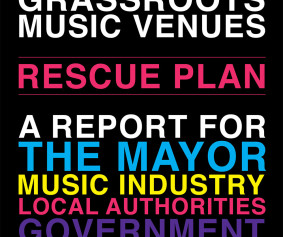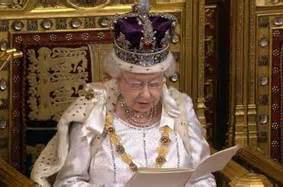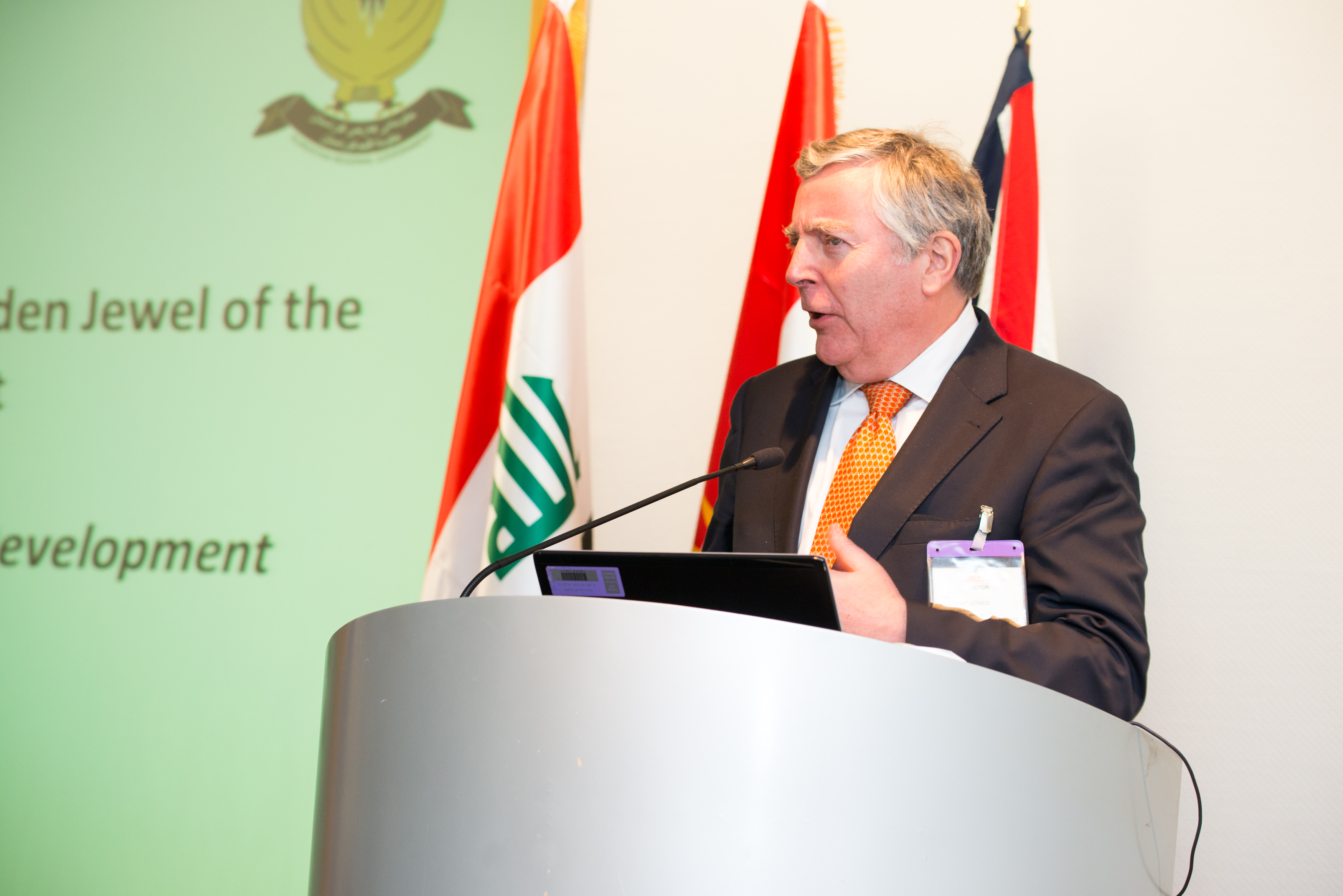Lord C-J launches Select Committee report on AI :"We Need an Ethical Framework"
Barely a day goes by without a piece in the media on a new aspect of AI or Robotics, including in today's Gulf Today I see. Some pessimistic others optimistic.Read more
Lord C-J says Ministers must ensure the multi-billion pound fashion industry industry is not put at risk
This is a piece I recently did for the House Magazine: ‘From fashion to furniture, Britain’s design sector relies on EU protections, writes Lord Clement-Jones’.
It was notable from her speech at the Mansion House earlier this month that the Prime Minister has woken up to the threat to our broadcasters of exit from the EU through loss of country of origin rules – the rules which have enabled the UK to operate as an international broadcasting hub.
The fact is, however, that this is but one of the many severe threats to our creative industries posed by Brexit.
The Prime Minister also needs to recognise the threat posed by Brexit to the design sector, which includes the fashion industry and furniture lighting and furnishings and many other design areas, from the potential loss of European unregistered design rights for United Kingdom-generated designs.
European design laws protect the individual character of a design, in particular as they relate to shape, texture, contours, lines, colour, ornamentation or materials. UK unregistered design right protects only the shape and configuration of a design.
Recently the Law Society made the news when it revealed that London Fashion Week is under serious threat from Brexit. They said it could lose its status as an event where new clothing creations are unveiled because laws that protect European fashion houses from unauthorised copying may no longer apply in London when Britain leaves the EU next year.
Fashion houses that first reveal an unregistered design on the London catwalk would be at risk from copies going on sale in the EU.
"As the majority in the industry are micro and SME design innovators with less than four employees they are particularly vulnerable to infringement of their designs."
— Lord Clement-Jones
In 2016 the value of UK fashion and textile exports stood at £9.1bn. The fashion industry, through the British Fashion Council, has highlighted the serious consequences for British fashion designers if they lose unregistered EU design rights protection in the other 27 member states. Potentially losing the protection currently available under EU law will leave these UK designers in a disadvantageous position versus their EU competitors.
These are typical but high profile examples of how designers across the board may be forced to launch new designs in EU countries after Brexit.
The potential impact to our economy is massive. UK design and design skills in the UK are currently worth a startling £209bn. This is put at risk if legal protection for design IP is weakened.
The reason for this is that copying is endemic not only in the fashion sector but in the lighting, furniture, furnishings, gift and product and many more design sectors, all of which will also be affected by loss of the EU unregistered design right. As the majority in the industry are micro and SME design innovators with less than four employees they are particularly vulnerable to infringement of their designs.
In the Lords this Thursday I will be seeking a firm assurance from the government that it will provide a solution to the potential loss of EU design rights in one of the fastest growing sectors in the economy. I will be calling on ministers to end this major threat to our design sector and introduce legislation which will offer the same EU unregistered IP rights’ protection as they now enjoy in 28 member states.
Unlike some other Brexit conundrums, in this case the solution lies in government’s hands and we and the design industry have every right to expect urgent action.
Lord C-J: Blueprint for Creative Industries needed post Brexit vote
I am seriously concerned like many others for the future of the creative industries after the Brexit vote in the referendum. Here is what I said in the Lords debate:
Last weekend I took part in the March for Europe from Park Lane to Parliament Square. It consisted largely of young people and families, all utterly concerned about and opposed to our leaving the European Union. All of them up to that point had seen their identity as bound up with Europe and now see an uncertain and more isolated future. I could not help reflecting while on the march on how my generation had let theirs down by voting in the way that it did and on how many in politics had failed to deliver a more positive message about the benefits and impact of being in the EU over the years, or to create a fairer society of the kind so well outlined by my noble friend Lady Manzoor yesterday and by the most reverend Primate. But whatever our regrets, we cannot afford to sit back and be buffeted by the consequences of Brexit. We need a steely determination to make the best of it and demonstrate to the no doubt overwhelmed Brexit unit how we can mitigate the risks and take the opportunities that arise.
Our tech, digital and creative industries currently punch way above their weight globally. We now need to develop a blueprint to show how they can continue to thrive despite not being in the EU and despite the uncertainties of the exit process, so they will be able more than ever before to benefit from the UK’s creative skills and culture. This depends on the UK in general and London in particular remaining a global hub for creative businesses. The essence of this is our continuing ability to retain, recruit and develop the best and most diverse talent from around the world.
Our film and video games studios, publishers, advertising agencies, music recording facilities and design and post-production houses depend on this flow of talent, failing which other locations within the EU—eastern and central Europe, for example—will appear more attractive. It would be deeply damaging if we or the EU erected barriers equivalent to those in the US, which mean that many UK musicians who plan to perform there find that visa-processing problems mean cancelled tours and postponed engagements. The truth is that the lack of free movement of talent will mean a less creative and diverse culture in the UK and will spell danger for the UK as a creative hub.
Individual parts of the creative sector have many unknowables. Will advertising services, that powerhouse of our creative economy, be subject to EU barriers when sourced from the UK if we are not in the internal market? Activities carried on by the audio-visual group are particularly vulnerable. The audio-visual media services directive has, since 1989, had a major impact by limiting applicable regulation to the country of origin. Almost a quarter of its exports are to the EU. It risks being caught between being unable to relocate production as it would fail to qualify as a British product—but, if so, not being treated as EU content. Once the UK is outside the EU, unless we specifically achieve a negotiated deal, the UK will no longer be able to come within the quotas applied by other European countries for their television broadcast services, which in some cases are as high as 70%.
In funding this type of product, every market matters, and if the EU falls out of the equation it could well mean that investment is no longer forthcoming to the same extent. Amanda Nevill, CEO of the BFI, has also warned of the impact on independent film-makers of the loss of EU funding from the Creative Europe programme. This adds up to the need to put in place at the very least greater government support for investment in these audio-visual products.
Then we have the digital economy, which is a vital part of our future. The digital single market being developed by the EU up to now was seen to be a cornerstone for the future of our tech and creative industries. We will now lose our influence on how regulations and intellectual property reforms are shaped, especially as regards the exceptions to copyright protection which are being developed.
We may also need to adopt safe-harbour provisions of the kind currently required between ourselves and the US in respect of data. Then there are the resources that will be needed now by government here and overseas through our diplomatic and consular services and UKTI in counteracting the impact of Brexit and, as Sir Martin Sorrell has said, targeting fast-growth markets. We need to redouble our efforts to promote Britain as a place to invest in, partner and do business with, especially in the creative industries. Just boosting the budget of the GREAT campaign will not be enough.
When we are outside the EU state aid rules, there may well be some opportunities through improved tax incentives to counteract some of these risks and to maintain the attractiveness of the UK as a destination for the creative industries. But I can see many other industries clamouring for special treatment, too.
I will continue to fight for the closest possible relationship with the EU. But what we need for this sector, as for others, is a cool appreciation of the actions we need to take and the deals we need to do to safeguard them. I am pleased that the Creative Industries Council is taking on this task, constituted as it is largely by a wide range of private sector players in the creative and digital industries, including television, computer games, fashion, music, arts, publishing and film, but co-chaired by Ministers from both BIS and the DCMS.
The Ministers and departments sponsoring our tech, digital and creative industries must immediately, as a priority, start working with the Brexit unit and with Justine Simons, the new deputy mayor for culture and the creative industries in London. It is vital, as she said last week, that we,
“maintain the flow of ideas and creative talent and shore up our cultural economy”.
I sincerely hope that this Government, whoever heads it, take heed of those wise words and recognise the importance of these industries to our future.
Lord C-J Demands Action from Government on Venue Closures
In the light of huge concern expressed at Venues Day 2015 and in the Rescue Plan put together by the Mayor's Music Venues Taskforce I recently instituted a debate in the Lords about what plans the Government have to support small grass-roots music venues.
This is what I said.
According to UK Music’s latest figures, the music industry now contributes £4.1 billion to the UK economy, generates £2.1 billion in exports and employs more than 117,000 people. The sector as a whole grew by 5% in 2014. While our music industry is succeeding in many aspects, behind these impressive figures, elements of the sector are not doing as well. The focus of this debate, and of my remarks today, concerns what plans the Government have to support small grass-roots music venues. I am delighted that so many other music-loving noble Lords are joining in today’s debate.
Earlier this year, the Mayor of London established a Music Venues Taskforce. Chaired by the Music Venue Trust, and involving the Musicians’ Union, UK Music and representatives from two London venues—the 100 Club and Village Underground—the task force published its Rescue Plan in October to address the 35% decline in grass-roots music venues in the capital since 2007. While a lot of the publicity for grass-roots venue closures has been centred on London, the issue of grass roots is not unique to the capital. Venues such as Leicester’s Princess Charlotte, TJs in Newport, the Duchess of York in Leeds, the Picture House in Edinburgh and the Roadhouse in Manchester have all closed due to a number of issues that add up to the same thing: running a grass-roots music venue is becoming increasingly challenging.
In the task force’s Rescue Plan, the Music Venue Trust came up with a definition of a grass-roots music venue—as distinct from other premises—centred primarily on its cultural and social role and based on music programming being the establishment’s raison d’être. Furthermore, being a grass-roots venue means being a beacon of music and a key generator of night-time economic activity, and taking risks with programming and acts.
I am sure that many noble Lords have been enjoying the latest album from UK artist Adele, 25, which has set records around the world for sales and is likely to be this year’s global music success story. Adele played her first gig at the 12 Bar Club in London, whose Denmark Street venue is now closed. She went on to play support slots and small shows across the country, building her skills and her experience in front of small audiences in the manner that has enabled UK artists to thrive for the last 50 years. Had it not been for thevital grass-roots music venue circuit, it is difficult to see how an artist such as Adele could have cultivated her creativity. In 1994, a little-known band by the name of Oasis undertook a 25-date tour of the UK which transformed them into the world’s leading live band. Of those 25 venues, only 12 remain open.
The UK’s ability to create more acts like Adele and Oasis is being challenged by a number of threats to these important institutions. These threats include rising property prices and rents, increased demand for housing in big cities, increases in business rates, lack of specific guidance on how to treat music venues in planning law, increased deregulation of the planning system—notably the permitted development right from 2013, which allows offices to be converted into homes without the need for full planning permission—and increased conditions put on other aspects of a venue’s licence, despite the exemptions put in place by the Live Music Act.
There has been a lack of central government legislative support when contrasted with other key music markets such as the USA or Australia. In financial terms, across continental Europe, the grass-roots music venues sector has attracted significant direct government or industry subsidy, which distorts the market, making it difficult for our venues in the UK to compete for international talent. Thankfully, there are a number of sensible actions that the Government can take in order to alleviate the problems for grass-roots music venues.
First and foremost, the Government should introduce the agent of change principle into planning law. This principle would mean that when a planning development is granted, the onus is on the incoming individual or business to take responsibility for any changes needed to deal with noise from businesses that existed in the vicinity before permission was granted. Such a provision would significantly reduce the financial and administrative burden placed on venues when new development occurs. The principle has already been adopted in some states in Australia and the US. The Mayor of London has indicated that the agent of change principle will be adopted in the London Plan 2018.
Will the Minister undertake to look at how primary legislation can be strengthened in this regard? An opportunity exists in the Housing and Planning Bill, where amendments to introduce the agent of change principle have been debated in the Commons. In the debate on Tuesday, Planning Minister Brandon Lewis rejected the amendments as unnecessary. He claimed that the National Planning Policy Framework incorporated the principle and so did the guidance—I suppose that he meant paragraph 6 of the noise planning guidance.
However, he said that he is trying to meet the music sector on this in conjunction with Culture Minister Ed Vaizey who pledged to arrange a meeting with a delegation when he attended Venues Day 2015, the annual national gathering of grass-roots music venues from across the UK, which is organised by the Music Venue Trust. UK Music has followed up on this but no date has been confirmed. Can the Minister undertake that this will happen before Report in the Commons on the Housing and Planning Bill?
Will the Minister also consider how the ground-breaking deed of easement of noise in the recent Ministry of Sound case can be further promoted as good practice in resolving cases between developers and venues? Will he also commit to a biannual meeting of key Ministers to consider, develop and monitor strategies of support for venues?
Secondly, the Government should introduce full relief from business rates for grass-roots music venues. As I have already outlined, business rates are problematic for music venues. A small London venue may pay tens of thousands of pounds a year in business rates, making it economically unviable without financial support. The Government are conducting a review into business rates relief for local newspapers. This creates a potential precedent for the Government to review rates for grass-roots music venues. Such a measure would go some way towards correcting the imbalance in cultural subsidies with our European competitors.
In monitoring the impact of the Live Music Act and further entertainment deregulation from earlier this year, the Government should review whether local authorities and the police are utilising and over- regulating other licensing conditions to regulate certain music venue activities which should otherwise benefit from the full impact of the coalition Government’s entertainment deregulation reforms. Internal government co-ordination is also key to this issue. This debate is being responded to by the noble Earl, yet other aspects of government such as DCLG, Defra and the Home Office also have a strong interest in this.
At Venues Day 2015, Minister Ed Vaizey firmly backed the idea that grass-roots music venues should have access to cultural funding. What steps are the Government taking to ensure that that happens, and specifically what can be done to ensure that any available funding acts directly to improve the infrastructure in those venues so that they are attractive places for touring artists to play?
Finally, will the Government make a specific response to the Mayor of London’s Music Venues Taskforce report, and what further work are they planning to undertake with other large cities and communities in the UK to promote the vital role of grass-roots music venues?
We protect and support our theatres, arts centres, civic centres, museums and galleries by recognising their cultural priorities. The Government should do all they can to ensure that these vital incubators of the live music industry are able to access similar levels of support and recognition from national government and local authorities as those received by other spaces. These issues are urgent for the future of live music venues and I hope that the Minister will respond appropriately.
The Minister's reply is here:
http://www.publications.parliament.uk/pa/ld201516/ldhansrd/text/151210-gc0001.htm#15121057000162
It showed they are taking the matter seriously particularly on the planning front. We will be testing their intentions when the Housing and Planning Bill comes to the Lords shortly and we will be putting down amendments to introduce the principle of the Agent of Change into primary legislation.
Lord C-J asks: Will this Government build on the achievements of the last?
This week in the debate on the Queen's Speech I urged the Government to build on the positive record of the coalition government in its support for the development of the UK's creative industries.
The UK’s creative industries have been one of the great success stories of the past five years. Significant policies benefiting these industries were developed during the coalition Government. I pay tribute to Vince Cable for all his work as the Business Secretary.
I want to see creative businesses continue to thrive across the whole country so that our economy can continue to reap the benefits. It is vital that we do not lose the momentum. Will this Government build on the achievements of the last? That is the question.
To maintain that momentum we need to encourage clustering of creative businesses developed through alliances between central government, local authorities, universities and the private sector in our major cities. Our cities and many counties need greater powers, especially over finance. I therefore welcome in principle the proposed cities and local government Bill as part of the Government’s northern powerhouse strategy.
Many noble Lords have talked about development of digital skills being vital. Expansion of digital platforms has highlighted the growing convergence of creative content and the tech sector. Skills in the arts and sciences are increasingly drawn together. Will the Government promote the value of creative subjects in schools and ensure that they are rewarded for offering a broad and balanced curriculum?
The number of apprenticeships created and taken up in the creative industries has expanded hugely in the past few years. I hope that they will enhance the co-ordination of action on skills by merging the two skills councils, Creative and Cultural Skills and Creative Skillset, into a single powerful and effective body. Will the Home Office break the habit of a lifetime and ensure with BIS that the tech and creative industries are able to fill the gaps in high-end skills, from abroad if necessary?
As we have heard today, our broadcasters are the linchpin of the creative industries and there are some key questions in that regard. Will the Government maintain Channel 4 in public ownership? Will they follow up the consultations started in March on Section 73 of the Copyright, Designs and Patents Act, which requires public service broadcasters to give away their most valuable product—their channels—to the pay-TV cable platform in the UK, and repeal it?
We had a mini debate on the BBC today and contributions on the BBC were made yesterday. Under John Whittingdale’s chairmanship, the Culture, Media and Sport Committee produced a valuable report on the future of the BBC with many useful observations and recommendations, including on governance and extension of the licence fee to iPlayer-only users, which can, and no doubt will, be taken forward into the charter discussions—and so too, I hope, will the committee’s views on the need for open and transparent discussions on the charter. Will there be a full and open debate on any decriminalisation proposals and will the potential financial cost of such a policy to the BBC be fully recognised? We need strenuously to protect the independence of the BBC. Currently, the licence fee is the best way of doing that. However, that does not mean that it needs to rise faster than inflation.
Investment in the UK’s creative industries can only really make a difference if their intellectual property rights, particularly those relating to the protection of their online materials, are properly understood and enforced. It was good to see the acknowledgement in the Conservative manifesto of the importance of intellectual property and of proper behaviour by search engines. However, I was rather baffled by some of the statements in the manifesto. It says:
“We will protect intellectual property by continuing to require internet service providers to block sites that carry large amounts of illegal content”.
I do not recall that we were able to persuade the last Government to bring in any legislation to do that. The legislation remained unenforced on the books, so I think there are questions to be asked about that. Is it not crucial that we should educate consumers on the importance of intellectual property and support initiatives designed to get voluntary agreement from the advertisers and credit card companies not to advertise on infringing sites?
Will the Government continue to support the long-term funding of the Police Intellectual Property Crime Unit, or PIPCU, which carries out such vital work? Will they increase sanctions relating to online offences in line with the recent government review of penalties for online copyright infringement, Penalty Fair?
I regret that we shall spend the next two years arguing about membership of the EU. I hope that, at the same time, the Minister will find time to work with our EU partners to ensure that proposals for copyright reform as part of the single digital market proposals do not damage our creative industries by limiting territorial licensing.
I very much hope that the Government will continue discussions with artists and creators on extending the law governing unfair contracts to include intellectual property contracts. I very much hope that, when possible under EU law, the application of public lending rights to remote e-lending will be extended.
II very much hope that the Government will continue to promote the value of live music despite the powers created in the Anti-social Behaviour, Crime and Policing Act, which are already being used disproportionately. I agree 100% with the noble Baroness, Lady Liddell, and with the comments made by my noble friend Lord Lee yesterday, on the importance of our tourism industry, which so far, even after five years of the last Government, has been treated as a Cinderella and holds such promise for job creation in the years up to 2020. Time will tell.
In her response Baroness Neville-Rolfe the IP Minister said:
"To make sure that the UK retains its position as the world’s best IP regime, we will also focus on a number of measures including: improving our rights-granting services; reforming the law to improve protection for businesses; striving to improve international patent systems; and educating businesses and consumers about IP. The consultation on Section 73 is continuing. The noble Lord, Lord Clement-Jones, is right to say that enforcement is incredibly important. It is great that we have managed to extend the life of PIPCU, and we are looking at future options for funding. He will also be very glad to know that we have used Section 97A to block access to websites alleged to host 10 million infringing e-books"
Busking: Let's Back Voluntary Action over Regulation!
Good to see that the work of the Mayor's Busking Taskforce has now come to fruition with the launch of Busk in London and the new voluntary code of conduct.
Many congratulations to Paul Broadhurst, Julia Jones, Jonny Walker, Nick Broad and many others.
Reduce The Maximum Stake on FOBTs
Recently in the Lords I have been arguing (along with John Leech MP and Lord Strasburger) for a major reduction in the maximum permitted stake for Fixed Odd Betting Machines.
Currently this is £100. This allows users to bet up to £100 every 20 seconds. During 2013, £1.6 billion was lost by gamblers on FOBTs in Britain, with most of the money coming from some of the UK’s most deprived communities. There are now some 34,500 FOBTs across the UK. The £100 stake on FOBTs is more than 40 times the EU average; combined with the fast pace of play, this makes them particularly dangerous, leading to high levels of problem gambling.
Current Government proposals to require account-based play via a loyalty card or similar system or talking to a staff member if a customer wants to bet more than £50 per play are inadequate. It does not amount to a stake reduction.
Here is the link to the Lords Debate
http://www.publications.parliament.uk/pa/ld201415/ldhansrd/text/150224-0003.htm#15022476000486
And here is the Link to the piece I wrote for Lib Dem Voice
Lord C-J Debates Rule of Law and the global role of English Law and Lawyers
In a recent debate on "the contribution of the legal systems of this country to the international standing of the United Kingdom and the observance of the rule of law in this country and abroad" I described the important role of the legal profession here and abroad..
http://www.publications.parliament.uk/pa/ld201415/ldhansrd/text/140710-0002.htm#14071063000808
As Lord Hodgson, said earlier in the debate, the rule of law in the English legal system is a major source of British influence abroad, as the recent report by the Select Committee on soft power of this House made very clear.
I had the great pleasure recently of participating with the noble and learned Lord, Lord Woolf, in a conference on the rule of law in Turkey, which was a very timely reminder in that country of the essential values inherent in the concept of rule of law, and I thank him for initiating this superb debate today. Many noble Lords have mentioned the fact that next year we are celebrating the 800th anniversary of Magna Carta through the Global Law Summit and other events. It is particularly important that we hand down this tradition to each new generation and that they are made aware of how precious it is.
The rule of law is not only a philosophical ideal and a bastion of individual rights. Our legal framework is critical to economic development, to the creation of jobs and to a successful market economy. A key factor is the integrity and independence of the judiciary and, as my noble friend Lord Marks said, London has become a world leader in dispute resolution. English legal practitioners are another reason for using English law. We have a long and well respected tradition of excellent legal services based on trust and performance. Huge effort over the past few years is beginning to result in a much more diverse profession, with commitment to the PRIME initiative by an alliance of law firms and legal departments across the United Kingdom to broaden access to the legal profession. Pro bono ethos and practice is much more embedded, too, within the legal profession. The noble Lord, Lord Livingston of Parkhead, in his first contribution to this House last December, confirmed his view that the legal services sector is one of the most important sectors for the UK. In fact, it employs almost 350,000 people. The noble Lord, Lord Pannick, referred to the fact that the rule of law is now one of Britain’s great exports; exports of legal services totalled more than £4 billion last year.
Our law and law firms are becoming ever more international to meet the needs of businesses. Law firms such as my own have responded by becoming international in their own outlook, establishing a global presence. There are close links between legal education, our laws and the legal sector. We attract students from all over the world. This needs to be nurtured. The coming decade promises to see increased competition as other cities such as Paris, New York and Hong Kong aspire to compete with London as a world leader in legal services.
We also face legislative threats such as the common European sales law being proposed by the European Commission as an EU civil law alternative to English common law. Protectionist regulations in growth markets such as India and a number of other emerging markets are, however, a major stumbling block, inhibiting the export of UK legal services and, indeed, opportunities for their own lawyers. The profession and the Government have, rightly, made persuading emerging markets to tear down their barriers to entry a key priority. Staring in 2011, the Ministry of Justice’s Plan for Growth set out the importance of English law and English legal services to the UK economy, and the need to open up overseas markets.
Our position in Europe is vital in achieving this goal. Another benefit from the EU is the freedom of establishment under the establishment directive. No wonder that, according to a recent CBI survey, two-thirds of law firms think that leaving the EU will have serious negative consequences. The challenges we face to ensure that the UK remains the world leader in the rule of law, in our standards of justice, in the provision of legal services and in the opportunities that exist in international jurisdictions are significant. However, we can meet them if we heed today’s warnings. I hope that we will be able to fulfil, as Ken Clarke said when he was Lord Chancellor, the UK ambition of becoming lawyer and adviser to the world.
Lord C-J promotes Kurdistan/UK tourism
This is a speech I gave at a recent Iraqi-Kurdistan Tourism Infrastructure Development Conference at the BIS Conference Centre-a Reflection on 10 years of development.
It's a great pleasure to be involved with an event promoting Iraqi Kurdistan.I’ve been looking back over developments in the last 10 years now since I first went to the Iraqi Kurdistan region in 2004 and its incredible what progress political, economic and social has been made since then .
As a member of of the All Party Parliamentary for Iraqi Kurdistan it's been a pleasure promoting relationships between the Region and the UK.
I made a speech about my visit in the House of Lords shortly after I got back and it is instructive to contrast then and now:
Then I was driven through South Eastern Turkey having flown to Dyarbakir and it was was a relief to arrive at the border with Iraq after so many hours. Now there is a major new British designed Hawler (Erbil) International Airport with direct flights from all over Europe
Then I complained about the attitude displayed by Turkish soldiers towards Iraqi Kurds at the border with border guards describing my literature about agriculture and education as a “problem” because it mentioned the words “Iraqi Kurdistan” .
Now there are excellent political relationship too between Presidents and PM Barzani and President Gul and PM Erdogan. The PKK issue in Turkey is beginning to be resolved too with a cease fire declared by their leader Abdullah Öcalan and a peace settlement in sight.
Trade between Turkey and Kurdistan flows freely. Turkish companies are the largest direct inward investor in the Region . Turkey is becoming directly involved in oil and gas exploration in the region
Now thanks to the freetrade approach adopted by the KRG there is huge investment by Turkey itself growing at 6-8%. Kurdistan’s growth rate is reported at 12%. There is a growing consumer economy.
Erbil itself and the other major cities are transformed . New hotels and shopping malls have sprung up in the last 10 years.
There are major Oil and gas developments. There has been significant exploration and finds from a number of medium sized companies and now oil majors such as ExxonMobil and Chevron.
10 years ago I noted the progress that had been made in providing universal education at primary and secondary levels in Kurdistan even in the smallest village and in adult education too. Now Higher Education is flourishing .Education links with Britain are growing stronger by the year symbolized by recent visit from higher education minister David Willets. Recently 21 universities visited to explore ties.
In those days there were two separate government administrations . One run by the KDP and one by the PUK. Now and for some time there is a common democratically elected parliament with regular terms of office for government following elections and the Prime Ministership has rotated between the parties on two occasions. . The government of different parties and faiths continues to be a model of pluralism.
Now we see the maturing of parliamentary opposition too.
I talked then about the absolute need for a British consulate in Erbil. Now there is vastly better representation of British interests in Kurdistan. We take the Consulate General for granted but still await proper premises in downtown Erbil and still have major UK visa frustrations !
Then the British were conspicuous by their absence in helping with the economic development of Kurdistan and building commercial ties. Now particularly in the last three years British companies have begun to get stuck in and we have seen many British companies represented at the major trade fairs. In 2011 at the Erbil Trade Fair there were 89 delegates, including 20 exhibitors, the largest UK trade delegation to the region to date, in fact the largest non Ministerial business delegation to anywhere!
There are something which were true then and I am glad to say have endured throughout the ten years
Then I said that security in the Region in contrast to the rest of Iraq thanks to the continuing presence of the peshmerga was excellent and this fact should be recognised in FCO advice. This has continued to be the case - and the FCO stresses this fact in travel and trade advice. Iraqi-Kurdistan really is an island in a sea of instability.
Then I said they had built the makings of a religiously tolerant pluralistic democratic society. It was notable that many of the Chaldean Christians retreating from the bombs in Mosul were taking refuge in Iraqi Kurdistan. Now there is a wonderful diversity of culture even more than ever in Kurdistan with a vibrant Christian quarter in Erbil in particular. Now of course the Region is absorbing a whole new set of refugees from Syria. All these elements lay the grounds for a potentially hugely successful tourism industry in Kurdistan which could become not just regional but international in nature.
I have a friend in Kurdistan who is passionate about the preservation of its cultural heritage and get regular updates on developments!
Bayan has mentioned some amazing sites. I've only been to a few of them.
Some cities in Kurdistan go back 8000 years to the dawn of civilisation like the UNESCO protected citadel of Erbil.
There is the Assyrian aqueduct -the largest in the world built by Sennecherib in 700 BCE and the site of Alexander the Great's famous battle against Darius III the Persian Ruler at Gaugamela IN 331 BCE.
There are the extraordinary Yazidi temples at Lalish
There is so much to see.
Now it even appears that the Hanging Gardens were not in Babylon but in Northern Iraq!
Allied to the history -and we must never forget that part of that history are some of the recent tragedies during the Anfall under Saddam Husedsein's rule and the genocide at Halabja in particular, now recognized as such by Parliament -there-is Kurdistan's extraordinary scenery -the spectacular Zagros mountains and dramatic waterfalls.
The mountains will be the friends of Kurdish tourism I hope!
Every year the tourism infrastructure in terms of transport links and much better quality hotels and hospitality offer-and shopping!- has improved.
All this will I am sure lead to a huge growth in tourism in Kurdistan. I am a great believer in the power of tourism to generate economic growth and employment and spend time urging government to do more here to release the potential.
I know the KRG are very aware of the potential importance of tourism to Kurdistan and I am absolutely delighted to help open today's proceedings and hand over to the Minister who is going to give us all the information we need to encourage investment in tourism and hospitality!









